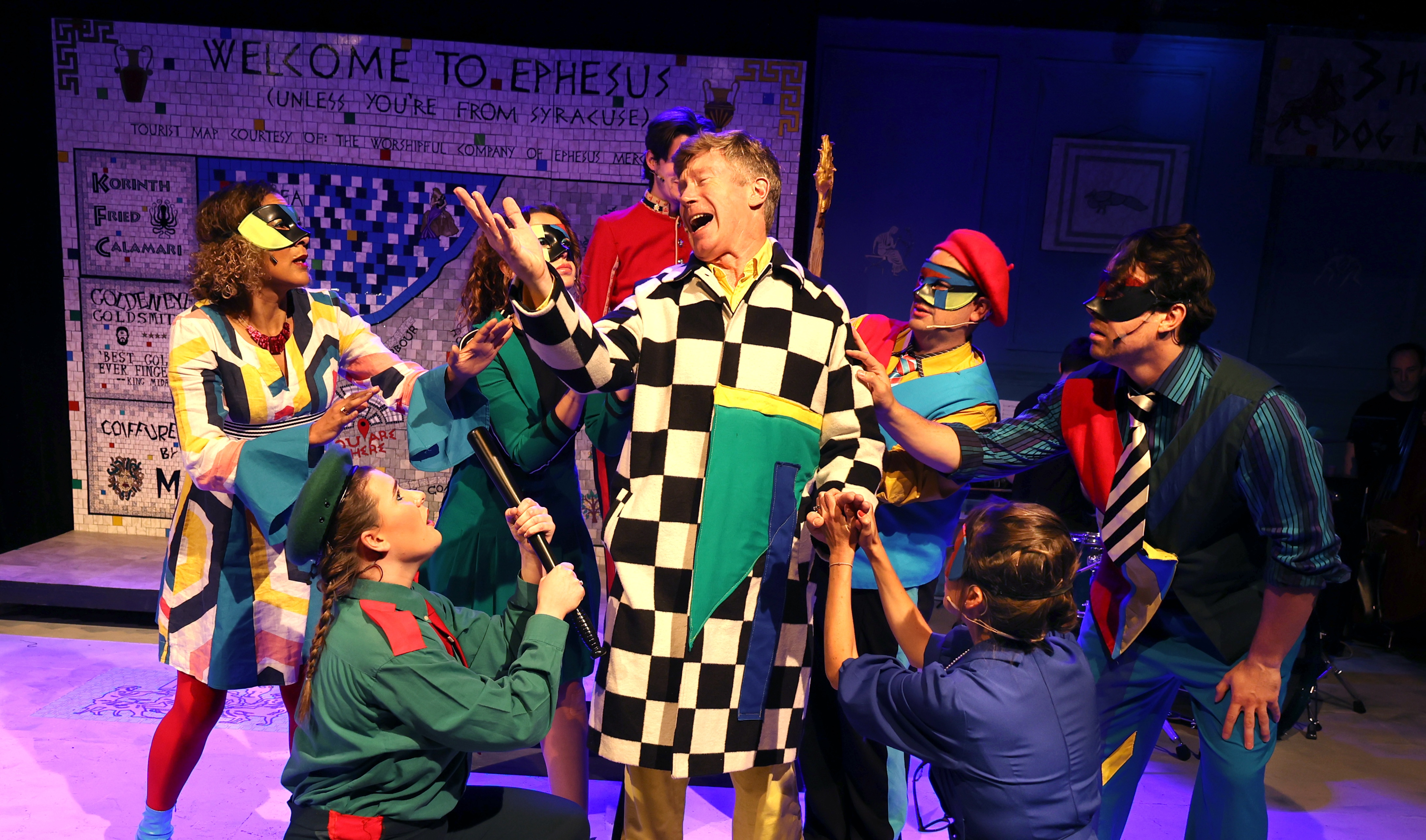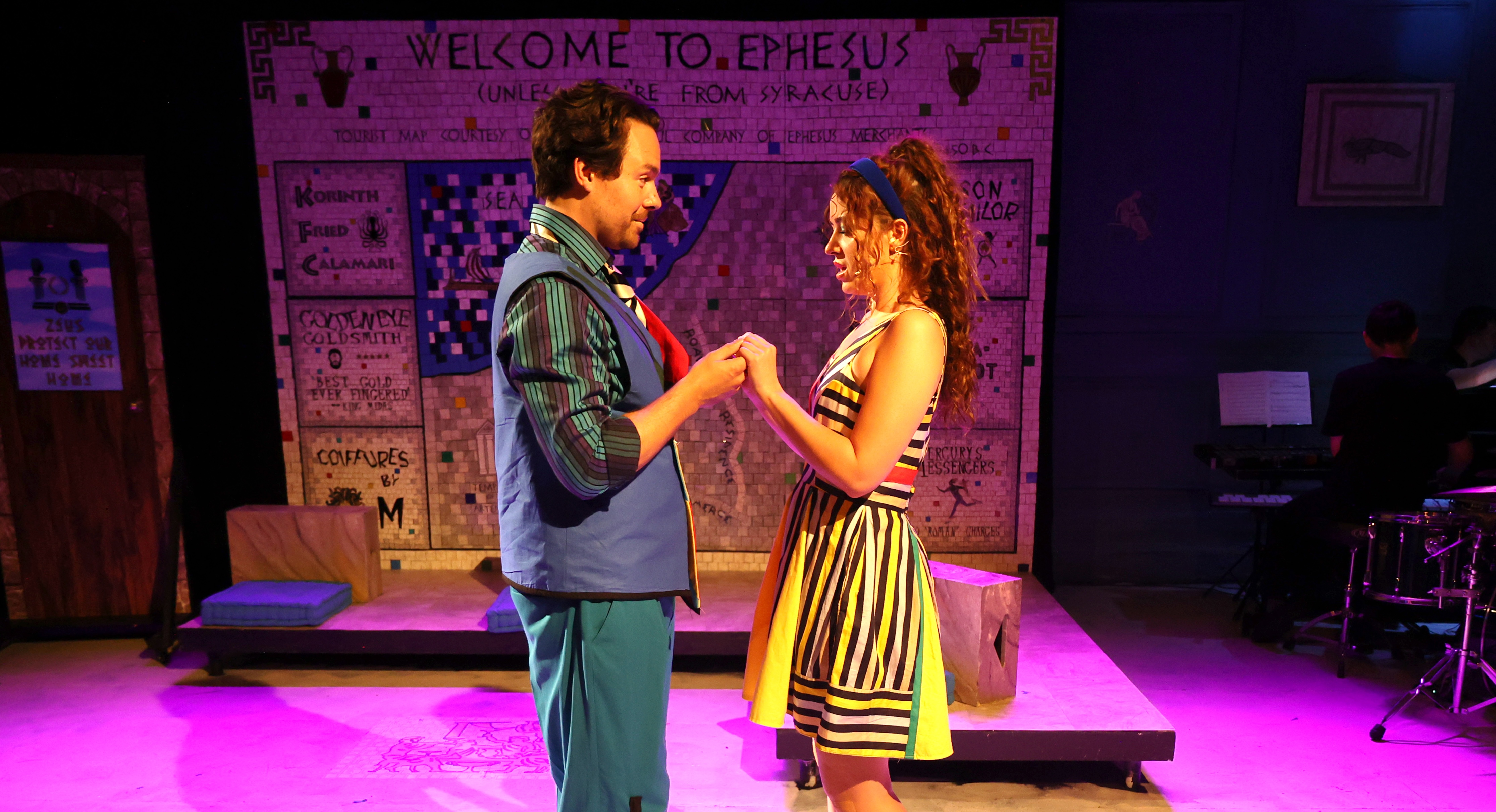
We delve into their creative vision of Mark Giesser, the Director of The Boys From Syracuse, a vibrant reimagining of Shakespeare's The Comedy of Errors...
Hi Mark, when was your first experience of directing like?
My first complete experience of directing was way back when in the States. We were involved in a production in suburban Chicago of a play of mine, and the director ended up crashing out. I took over, things worked, and I’ve enjoyed the process immensely ever since.

Can you describe your vision for The Boys From Syracuse?
As a big fan of Rodgers and Hart, I’ve delighted in the album of the show for years, but never had the opportunity to either work on it or see it on stage. Having the opportunity to stage it at Upstairs at the Gatehouse, I suppose I could say that my vision was to see if the show could work coherently with a small ensemble – there are twenty-odd named roles in the script, and the original Broadway cast was listed at forty-nine people!
Otherwise, the primary goal with The Boys From Syracuse was to bring a somewhat neglected but definitely brilliant musical back to delight a London audience who haven’t had that many chances to revel in Rodgers and Hart’s beautiful score and George Abbott’s seriously clever book. Interpretively, part of the overall challenge was to balance the farcical elements of the story with the genuine emotional content; the show is sometimes referred to as a ‘musical farce’, but it’s as much a traditional musical comedy with romantic and even a few bittersweet moments.
Rodgers and Hart’s classic musical comedy debuted in 1938; what’s it been like bringing the material into 2024?
The score is timeless; Abbott’s book was clearly geared to the world of 1938 Broadway, and in particular, to the special comedic talents of Teddy Hart, Lorenz Hart’s brother, who starred in the original production. So although they’re difficult to trace with precision, some of the sequences in the book seem to come out of the particular comedic milieu of that world -- i.e., vaudeville sketches that their audience would have known well. Those have to be played as best possible to an audience not familiar with the in-jokes. And, as with Shakespeare’s The Comedy of Errors that’s the basis for the musical, there are certain concepts acceptable to the world of 1938 that we no longer find amusing or acceptable.
Shakespeare’s men don’t always treat their female romantic partners well, and so our company needed to create a world where the women in the play weren’t stereotypically subservient to their men, as would ultimately have been expected of them in Elizabethan England and perhaps even in 1930s New York.

What has Caroline Kennedy brought to the performance?
Caroline, aside from being an absolutely delightful person to work with, brings brilliant vocals to the role of the neglected wife, Adriana – her background is largely from the world of opera – as well as lovely comic timing and an overall dignity and emotional balance. But perhaps even more importantly, we’ve had the privilege of working with an entire ensemble and creative team who have meshed their superb individual talents and different perspectives into a very warm and energetic theatrical family.
How have the creative team evoked the look and feel of ancient Greece?
The set by Intellectual Propery was designed to be whimsical, done in the style of ancient mosaic work but with elements and jokes from the modern world. The costumes by Alice McNicholas, assisted by Isabel Southey, were designed for their own special world, based on concepts from the Bauhaus Ballet of the 1930s with a few stylistic echoes of the ancients. My brief to these exceptional creatives was actually to avoid dead-on realism, lest the audience enter the space and think they were about to see Medea.
The book and lyrics to the show revel in fun anachronisms and I wanted our designers to enjoy the same freedom. Shakespeare’s ancient Ephesus most likely didn’t look or sound much like the real ancient thing when The Comedy of Errors debuted, and as Abbott’s book says, ‘if it’s good enough for Shakespeare, it’s good enough for us!’
Learn more about The Boys From Syracuse here.
All photography via The Boys From Syracuse.